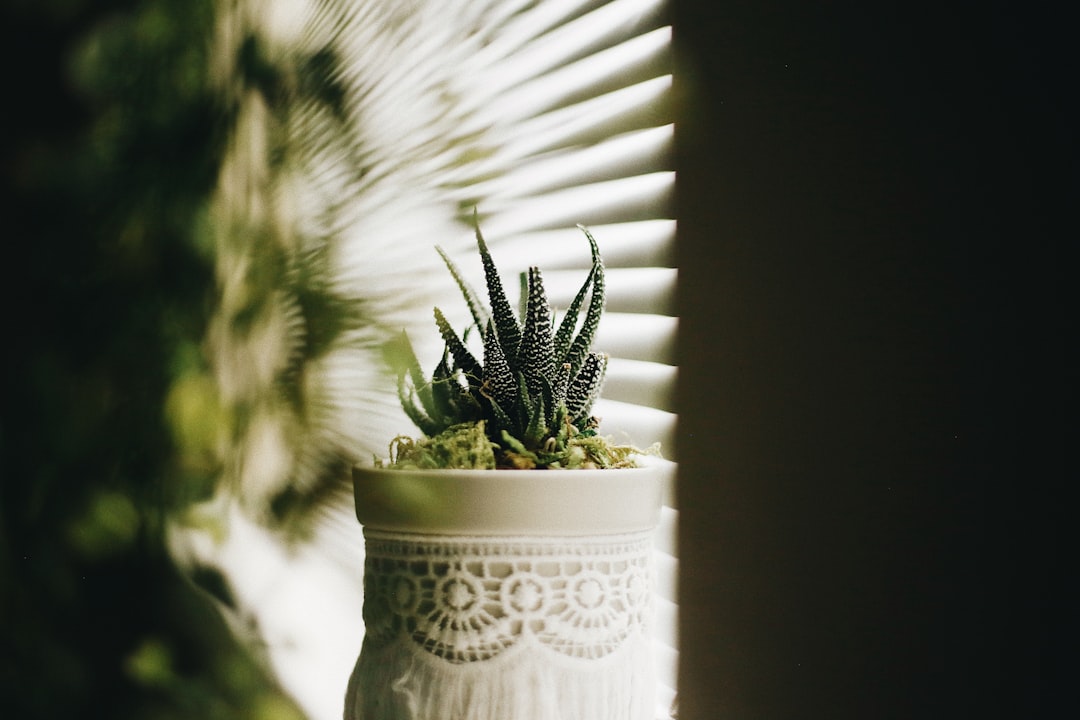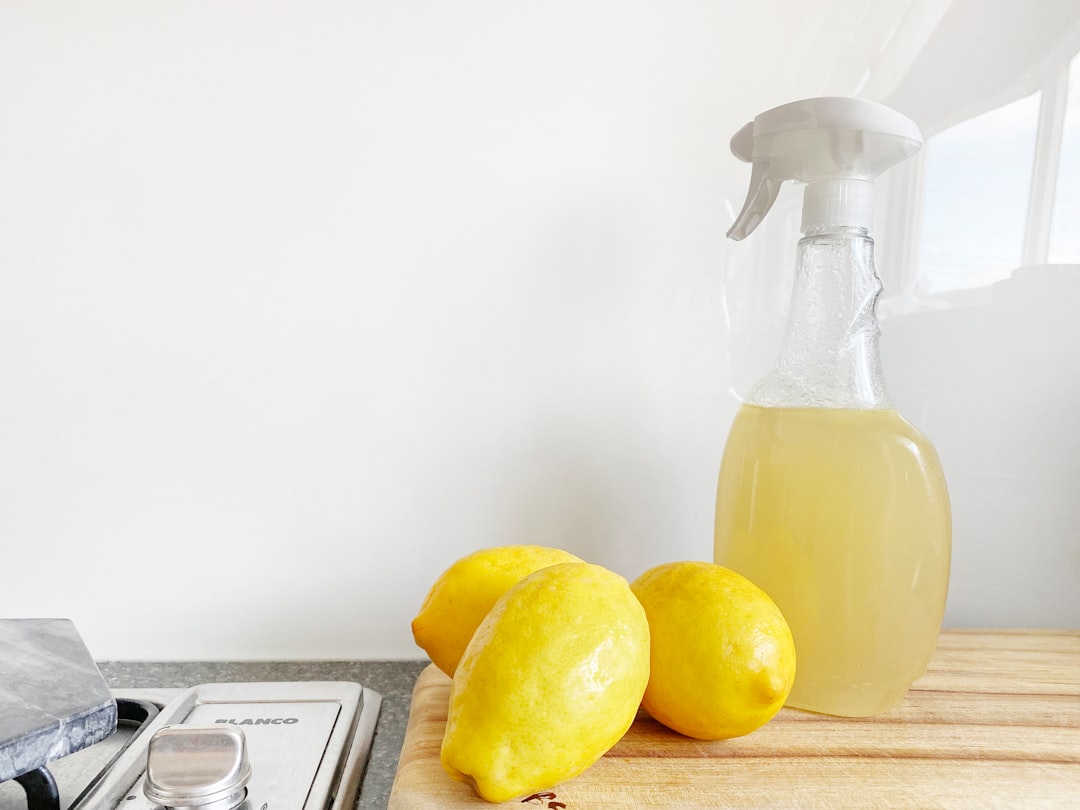Aloe vera is a succulent plant species that has been utilised for centuries for its medicinal and skincare properties. It is indigenous to the Arabian Peninsula but is now cultivated in tropical climates worldwide. The plant possesses thick, fleshy leaves containing a gel-like substance rich in vitamins, minerals, enzymes, and amino acids.
Aloe vera has been employed in traditional medicine for its healing properties and is a common ingredient in skincare products due to its soothing and moisturising effects. The plant is also straightforward to grow and maintain, making it a popular choice for home gardens and natural skincare enthusiasts. Aloe vera has a lengthy history of use in various cultures for its healing properties.
The ancient Egyptians referred to it as the “plant of immortality” and utilised it to treat wounds, burns, and skin infections. In traditional Chinese medicine, aloe vera has been used to address digestive issues and promote skin health. Today, aloe vera is widely used in skincare products such as lotions, creams, and gels, as well as in natural remedies for sunburn, acne, and other skin conditions.
Its popularity is attributed to its ability to soothe and hydrate the skin, making it a versatile ingredient for all skin types.
Summary
- Aloe Vera is a succulent plant known for its healing properties and has been used for centuries for its medicinal benefits.
- Aloe Vera has natural anti-inflammatory and antimicrobial properties, making it effective in treating wounds, burns, and skin irritations.
- Aloe Vera is a great natural moisturizer that can help hydrate and soothe dry skin, making it a popular ingredient in skincare products.
- Aloe Vera contains salicylic acid, which can help reduce acne and blemishes by unclogging pores and reducing inflammation.
- Aloe Vera is rich in antioxidants and vitamins that can help improve skin elasticity, reduce fine lines, and prevent premature aging.
Aloe Vera’s Healing Properties
Nourishing Vitamins
Aloe vera is rich in vitamins A, C, and E, which are known for their anti-inflammatory and antioxidant properties. These vitamins can help to protect the skin from environmental damage and promote healing.
Enzymes and Minerals
The plant also contains enzymes such as bradykinase, which can help to reduce inflammation and speed up the healing process. In addition to vitamins and enzymes, aloe vera also contains minerals such as zinc, magnesium, and calcium, which are essential for healthy skin. These minerals can help to promote collagen production, improve skin elasticity, and support the skin’s natural barrier function.
Essential Amino Acids
Aloe vera also contains amino acids, which are the building blocks of protein and are essential for healthy skin cells. These properties make aloe vera an effective ingredient for soothing and healing the skin, making it a popular choice for treating sunburn, minor burns, and other skin irritations.
Aloe Vera for Hydration and Moisturization
Aloe vera is well-known for its hydrating and moisturizing properties, making it an ideal ingredient for skincare products. The gel from the plant’s leaves is lightweight and easily absorbed by the skin, making it an effective natural moisturizer. Aloe vera helps to lock in moisture and prevent water loss from the skin, keeping it hydrated and supple.
The plant’s gel also contains polysaccharides, which can help to attract and retain moisture in the skin, providing long-lasting hydration. Aloe vera is suitable for all skin types, including sensitive and oily skin. Its lightweight texture makes it an excellent choice for those with oily or acne-prone skin, as it provides hydration without clogging pores.
For those with sensitive or dry skin, aloe vera can help to soothe irritation and provide relief from dryness. The plant’s moisturizing properties make it a versatile ingredient for skincare products such as lotions, creams, and serums. It can also be used on its own as a natural moisturizer or added to homemade skincare recipes for an extra boost of hydration.
Aloe Vera for Acne and Blemishes
Aloe vera is a popular natural remedy for acne and blemishes due to its soothing and anti-inflammatory properties. The plant’s gel contains salicylic acid, which is a beta hydroxy acid that can help to exfoliate the skin and unclog pores. This can help to prevent breakouts and reduce the appearance of blemishes.
Aloe vera also contains anti-inflammatory compounds such as gibberellins and auxins, which can help to reduce redness and swelling associated with acne. In addition to its anti-inflammatory properties, aloe vera also has antibacterial properties that can help to fight acne-causing bacteria. This can help to prevent new breakouts from forming and promote clearer skin.
Aloe vera can also help to fade acne scars and hyperpigmentation due to its ability to promote skin healing and regeneration. Its gentle nature makes it suitable for those with sensitive or acne-prone skin, as it can help to soothe irritation without causing further breakouts.
Aloe Vera for Anti-Aging
Aloe vera is a popular ingredient in anti-aging skincare products due to its ability to promote collagen production and improve skin elasticity. The plant contains antioxidants such as vitamins A, C, and E, which can help to protect the skin from free radical damage that can lead to premature aging. These antioxidants can help to reduce the appearance of fine lines and wrinkles, as well as improve overall skin texture and tone.
Aloe vera also contains enzymes such as bradykinase, which can help to promote skin healing and regeneration. This can help to reduce the appearance of age spots and promote a more youthful complexion. The plant’s moisturizing properties can also help to plump up the skin and reduce the appearance of fine lines and wrinkles.
Aloe vera is a gentle yet effective ingredient for anti-aging skincare, making it suitable for all skin types.
Aloe Vera for Sunburn Relief
Soothing Sunburn Relief
The plant’s gel contains cooling properties that can provide instant relief from sunburn pain and discomfort. Aloe vera helps to reduce inflammation and redness associated with sunburn, promoting faster healing of the skin.
Moisturising and Repairing
Its moisturising properties can also help to prevent peeling and dryness that often occurs after sunburn. In addition to providing relief from sunburn symptoms, aloe vera can also help to repair sun-damaged skin. The plant’s antioxidants can help to neutralise free radicals caused by sun exposure, preventing further damage to the skin.
Long-term Skin Health
Aloe vera’s ability to promote skin healing can also help to reduce the long-term effects of sun damage such as premature ageing and hyperpigmentation. Its gentle nature makes it suitable for all members of the family, including children and those with sensitive skin.
Incorporating Aloe Vera into Your Skincare Routine
Incorporating aloe vera into your skincare routine can provide numerous benefits for your skin. Whether you have dry, sensitive, oily, or acne-prone skin, aloe vera can help to soothe irritation, provide hydration, and promote overall skin health. You can find aloe vera in a wide range of skincare products such as lotions, creams, gels, serums, and masks.
Alternatively, you can use pure aloe vera gel directly from the plant or in homemade skincare recipes. When choosing skincare products containing aloe vera, look for high-quality formulations that contain a high concentration of aloe vera gel or extract. This will ensure that you are getting the maximum benefits from this powerful plant.
You can also combine aloe vera with other natural ingredients such as honey, coconut oil, or tea tree oil for added skincare benefits. In conclusion, aloe vera is a versatile and effective ingredient for skincare that has been used for centuries for its healing properties. Whether you are looking to soothe sunburned skin, fight acne, or reduce the signs of aging, aloe vera can be a valuable addition to your skincare routine.
Its gentle yet powerful nature makes it suitable for all skin types, making it an ideal choice for those looking for natural skincare solutions.
If you’re looking to achieve a natural glow without makeup, you may want to check out this article on how to achieve a natural glow without makeup. It offers tips and techniques for enhancing your skin’s natural radiance, which can be complemented by the use of aloe vera for skincare. Understanding the best skincare routine for men is also important, and this article on navigating men’s skincare provides valuable insights. Additionally, if you struggle with oily skin, you may find the article on how to combat oily skin helpful in identifying effective products and techniques to manage this common skincare concern.
FAQs
What are the benefits of using Aloe Vera for skincare?
Aloe Vera has numerous benefits for skincare, including its ability to moisturize the skin, reduce inflammation, treat sunburn, and promote healing of wounds and minor burns.
How does Aloe Vera help to moisturize the skin?
Aloe Vera contains a high water content, which helps to hydrate and moisturize the skin. It also contains various vitamins and minerals that nourish the skin, leaving it feeling soft and supple.
Can Aloe Vera help to reduce inflammation in the skin?
Yes, Aloe Vera has anti-inflammatory properties that can help to reduce redness, swelling, and irritation in the skin. It is often used to soothe conditions such as eczema, psoriasis, and acne.
Is Aloe Vera effective for treating sunburn?
Yes, Aloe Vera is known for its soothing and cooling properties, making it an effective treatment for sunburn. It can help to reduce pain and redness, and promote healing of the damaged skin.
How does Aloe Vera promote healing of wounds and minor burns?
Aloe Vera contains compounds that have been shown to accelerate the healing process of wounds and minor burns. It can also help to reduce the risk of infection and scarring.
Are there any potential side effects of using Aloe Vera for skincare?
While Aloe Vera is generally safe for topical use, some people may experience allergic reactions or skin irritation. It is always recommended to do a patch test before using Aloe Vera on a larger area of the skin.




